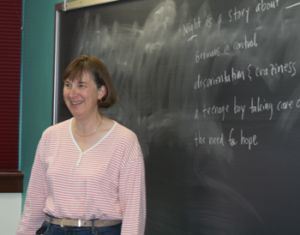service learning
Select an item by clicking its checkbox

Critical Perspectives on Service-Learning in Higher Education
Date Reviewed: August 14, 2015
Service-learning, as a valued curricular support to learning, has received attention in institutions of higher education as an approach that provides students with social and academic capabilities for their future careers. The concept of service-learning has been around for centuries in the American academy, but higher education in Europe has not fully embraced service-learning as an innovative pedagogy to better prepare graduates for a global workforce.
Research on service-learning has mainly focused on the benefits students receive, and how to organize service-learning to produce these benefits. Author Susan Deeley suggests “[moving] away from attempts to ‘prove [service-learning] works’ towards a more sustainable approach of improving how it works” (31). Critical Perspectives on Service-Learning in Higher Education offers a pioneering voice in the field of service-learning because the author practices what she preaches. She addresses the role of the teacher in service, offering practical strategies to facilitate critical reflection and academic writing, and tips for writing critical incidents and reflective journals to enable students’ “lifelong critical development” (8). The author constructs a theoretical paradigm with guidance on how to design, implement, and accomplish service-learning.
Through the analysis of a theoretical perspective, Deeley offers multiple practical service-learning applications, including some from personal experience, both in local and international settings. The author does not intend to solve the critical need for innovation in teaching across the disciplines; rather, she offers learning theories, ideas, and perspectives for the regard of service-learning as a critical pedagogy that fosters agency and empowers students to explore on their own terms with guidance from faculty. Each chapter can stand alone or be used as a resource for teaching and learning.
The book is divided into two major sections: (1) theory and (2) practice grounded in field experiences. In search of an inclusive view of service-learning, the first section (chapters 2 to 4) engages the reader in defining “service-learning” through a theoretical and philosophical lens, presenting an extant list of definitions and considerations that raise questions about service-learning’s “suitability” as a critical pedagogy. The second section (chapters 5 to 7) moves toward the practical application of service-learning “[which] involves students as active learners, constructing meaning in order to make sense of their experiences” (103). Students experience a “transformation” in the process of reflecting critically on their beliefs, opinions, and values. The research includes journal excerpts from eight students over the course of seven years showing how service-learning works in community settings.
The importance of summative co-assessment is underscored for facilitating a democratic approach to learning that helps students master and articulate skills which are transferable to the workplace. While only three pedagogical theories are reviewed (traditional, progressive, and critical), the discussion provides an approach to enhance the scholarship of teaching (Boyer, Scholarship Reconsidered: Jossey-Bass, 1990). This approach is advanced by Deeley’s explanation of practices used in critical reflection.
Even though the book was written from an international viewpoint, the service-learning experiences only take into account two countries: the United Kingdom and Thailand. Thus, additional approaches from around the world would enhance the global perspective. This book is an excellent resource that would benefit faculty members and administrators collaborating to integrate this “powerful pedagogy” as a complement to or replacement for traditional forms of teaching and learning.
The time: November 9–10, 1938. The place: Germany. The casualties: More than 7,000 Jewish shops along with 1,574 synagogues damaged or destroyed. One hundred Jews murdered; 30,000 imprisoned in concentration camps. They were the first victims of a racial purge that went on to claim more than 6 million lives. Now, 76 years after Kristallnacht, I am ...
